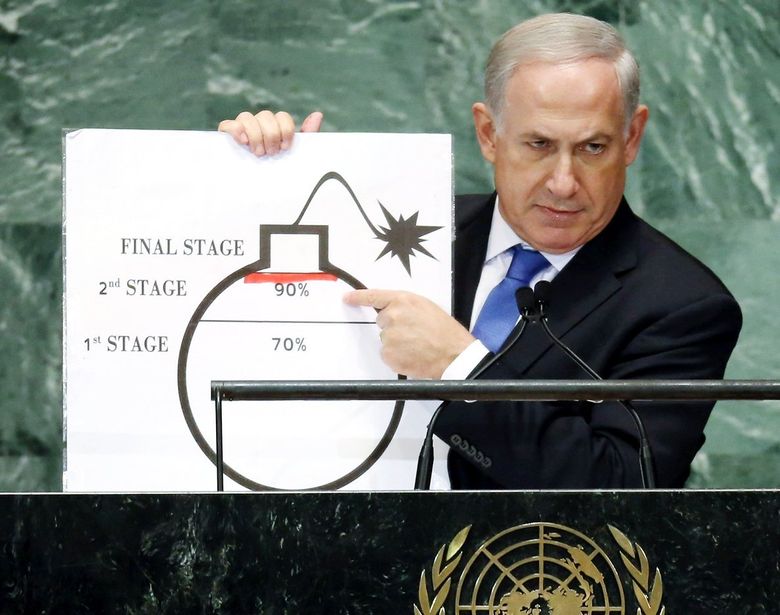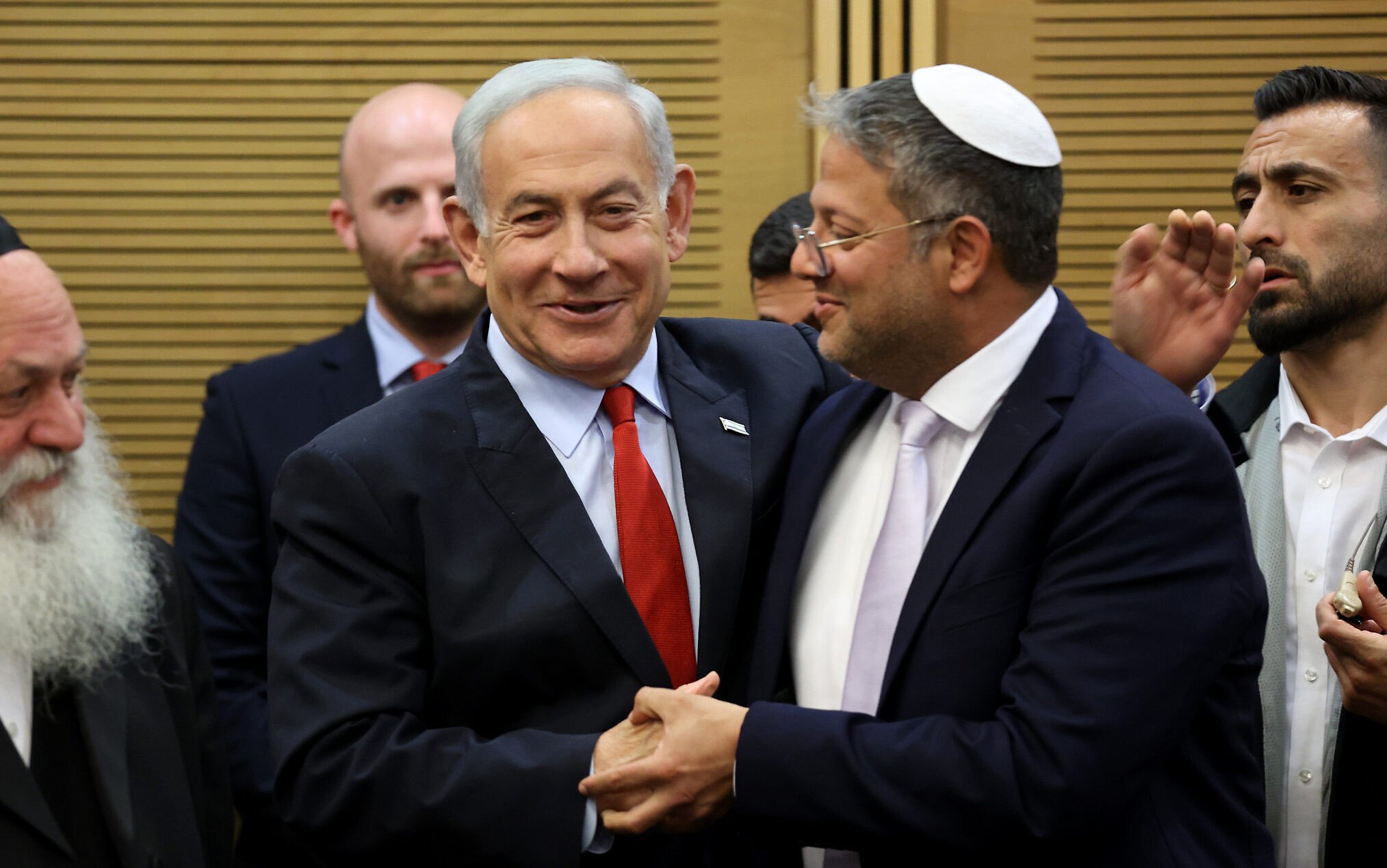Chapter 7:
Dealing with International Criticism and Legal Consequences
Netanyahu’s government has long been at the center of international criticism from the United Nations and NGOs to the International Criminal Court (ICC). His response is characterized by rejection, counterattacks, and active obstruction. He has developed mechanisms to delegitimize accusations and avoid real legal consequences.
On the diplomatic stage, Netanyahu often meets UN resolutions and reports with open defiance. For example, he repeatedly ignored UN Security Council resolutions against settlement construction (most recently UNSCR 2334 in late 2016), dismissing them as “unfair” and continuing construction regardless. In the UN Human Rights Council (UNHRC), Israel is a “permanent target of criticism,” which Netanyahu uses to portray the body as fundamentally biased. In 2012, he called the UNHRC a “hypocrisy show against Israel” after it adopted the Goldstone Report on Gaza. Netanyahu systematically refused to cooperate with UN investigations—whether related to the 2008/09 Gaza War (Goldstone Commission) or later conflicts. Instead, Israel launched diplomatic campaigns to undermine such investigations. In the Goldstone case, massive pressure led to South African jurist Richard Goldstone retracting part of his report—an achievement for Israeli Hasbara and proof for Netanyahu that an aggressive response to criticism pays off. Consequently, Israel also acted forcefully against the 2021 Amnesty and HRW “apartheid” reports (see Chapter 4), pressuring some governments to distance themselves. Netanyahu relies on close allies: the US has often shielded Israel, blocking resolutions. Under Trump, Netanyahu found a like-minded partner who openly mocked international criticism (such as the US withdrawal from the UN Human Rights Council in 2018, a move Netanyahu welcomed). Netanyahu’s strategy is clear: weaken international forums when they criticize Israel, whether through alliances (for example, with Orbán in the EU, who blocks sanctions) or by loudly condemning the institutions themselves.
When faced with legal steps by the international community, Netanyahu is especially combative. When the International Criminal Court (ICC) in The Hague announced in 2019/20 that it would investigate alleged war crimes in the occupied territories, Netanyahu responded with sharp personal attacks. He accused ICC Chief Prosecutor Fatou Bensouda of “blatant antisemitism” should she dare to indict Israelis
Reuters.
In a symbolic speech at the Western Wall in Jerusalem, he condemned the possible investigation as “new anti-Jewish decrees” and claimed the court was denying the Jewish people their right to live in their land
Reuters.
Netanyahu called the initiative “pure antisemitism,” hoping to win support in Western countries. This charge of antisemitism is his sharpest weapon against legal criticism. He reverses the roles and presents Israel as the victim of age-old persecution, now in the form of international jurists. The tactic has worked: many Israelis, and even some politicians in countries like Germany, have struggled to support measures labeled as antisemitic. Netanyahu’s government has also questioned the ICC’s jurisdiction, arguing that Palestine is not a recognized state and Israel is not a party to the ICC. The aim is to undermine proceedings from the outset. The US (under Trump) even threatened the ICC with sanctions. Netanyahu’s goal is clear: buy time and create political pressure so that the ICC hesitates or backs down.
Reuters
Nevertheless, in 2021 the ICC officially opened an investigation into crimes in the Palestinian territories. Since then, Israel has refused any cooperation, and Netanyahu made clear that no Israeli would ever voluntarily appear before the court. Instead, Israel relies on diplomatic protection. Netanyahu thanked countries like Hungary for promising immunity (in March 2023, Orbán invited Netanyahu to Budapest in open defiance of a possible arrest warrant)
Jacobin.
When reports surfaced in 2023 that the ICC had secretly issued arrest warrants for Netanyahu and Defense Minister Gallant over the Gaza war, there was outrage in Israel
PBS.
Politicians across the spectrum including Netanyahu’s critics, closed ranks and called the warrants “a reward for terrorism” and a “moral bankruptcy” of the ICC. Netanyahu stated that Israel “despises and rejects this absurd decision with disgust.” The Guardian. The government claimed that the IDF (Israeli army) has its own high-level investigation system and there is no need for foreign interference, this is the standard argument against the ICC. In reality, however, human rights organizations criticize that Israel rarely investigates or prosecutes its own soldiers or officials for offenses against Palestinians. Netanyahu still uses these nominal investigations as a shield. As long as Israel can claim to be investigating itself, the ICC principle of complementarity blocks further action from The Hague. Netanyahu thus has an interest in occasionally simulating minimal legal steps domestically to take the wind out of the ICC’s sails
Jewish Chronicle.
Another area is Netanyahu’s handling of NGOs and human rights organizations. His governments are known for harassing critical NGOs. Groups such as B’Tselem or Breaking the Silence are labeled as “traitors” and “foreign agents.” In 2016, the coalition passed an NGO law that imposed special reporting requirements on organizations with foreign funding (which applies to many human rights NGOs), widely understood as an attempt to make their work more difficult. International NGOs like Amnesty and Human Rights Watch have faced access restrictions from Netanyahu’s officials; in 2019, HRW’s director for Israel, Omar Shakir, was denied a visa and expelled. Their reports are publicly denounced as lies, propaganda, or antisemitic
NPR.
Netanyahu’s communications advisers do not shy away from personal attacks against Western critics, accusing EU officials of double standards or of being internal enemies. Netanyahu has often claimed that Europe funds “chaos-creating” NGOs in Israel to destabilize the country, framing external criticism as part of global conspiracies against Israel, a narrative that finds support at home.
Netanyahu’s own legal troubles are also worth noting, though for a different reason. Since 2020, he has been on trial in Israel for bribery, fraud, and breach of trust. He responded in a familiar way, speaking of a “witch hunt” by dark forces (media, the left, police) and attempting to reshape the justice system through a controversial judicial reform designed to help him avoid conviction
Jerusalem Post.
This domestic crisi marked by mass protests against the erosion of checks and balances also affects the Palestinian issue. Netanyahu struck deals with right-wing coalition partners for their support on judicial reform, giving them a free hand on settlement and security matters in return. He was willing to make extreme concessions to the settler bloc, including fast-tracking land confiscations and bypassing legal checks on settlement expansion, all to secure his political survival. This resulted in de facto annexation; in 2023, the government rapidly approved tens of thousands of new settlement units. International criticism followed, but Netanyahu, focused on staying in office, simply ignored it as usual.
In summary, Netanyahu’s strategy towards international criticism is threefold: deny, attack, and wait it out. Denial means refusing to acknowledge wrongdoing or to yield to legitimate demands (such as compliance with the Fourth Geneva Convention in occupied territories). Attack means smearing critics as antisemitic, supporters of terror, or hypocrites — thus flipping the accusation. Waiting it out means playing for time until the news cycle changes, while creating facts on the ground and relying on powerful friends, especially the United States. Legal prosecution for Gaza wars or settlement policy is blocked by any means necessary, including political deals (in the past, Israel even threatened to halt peace negotiations if ICC pressure grew too strong — a form of blackmail). At the same time, Netanyahu positions Israel as an indispensable partner in fighting terror and as a high-tech and security powerhouse, which leads Western countries to tone down their criticism out of pragmatism.
Whether this strategy will work in the long run remains to be seen. More and more voices, from former allies to liberal Jews in the diaspora, are turning away from Netanyahu due to the openly extremist tendencies of his government. The legal reckoning for war crimes in Gaza, especially after the devastating 2023 bombardments with tens of thousands of civilian deaths, may yet catch up with Netanyahu and Israel. He already avoids certain countries out of fear of arrest warrants. However, he is confident that geopolitics, above all US protection, will save him from the worst. So far, this calculation has worked: international law has often yielded to realpolitik, and Netanyahu’s strategy of waiting out harsh criticism has often succeeded. Yet Israel’s reputation has been badly damaged. Should Netanyahu eventually leave office, his legacy will include a level of international isolation that will be hard to repair. Until then, his motto for dealing with criticism remains: deny and counterattack. As he once classified the ICC investigation as "pure anti-Semitism" Reuters.

